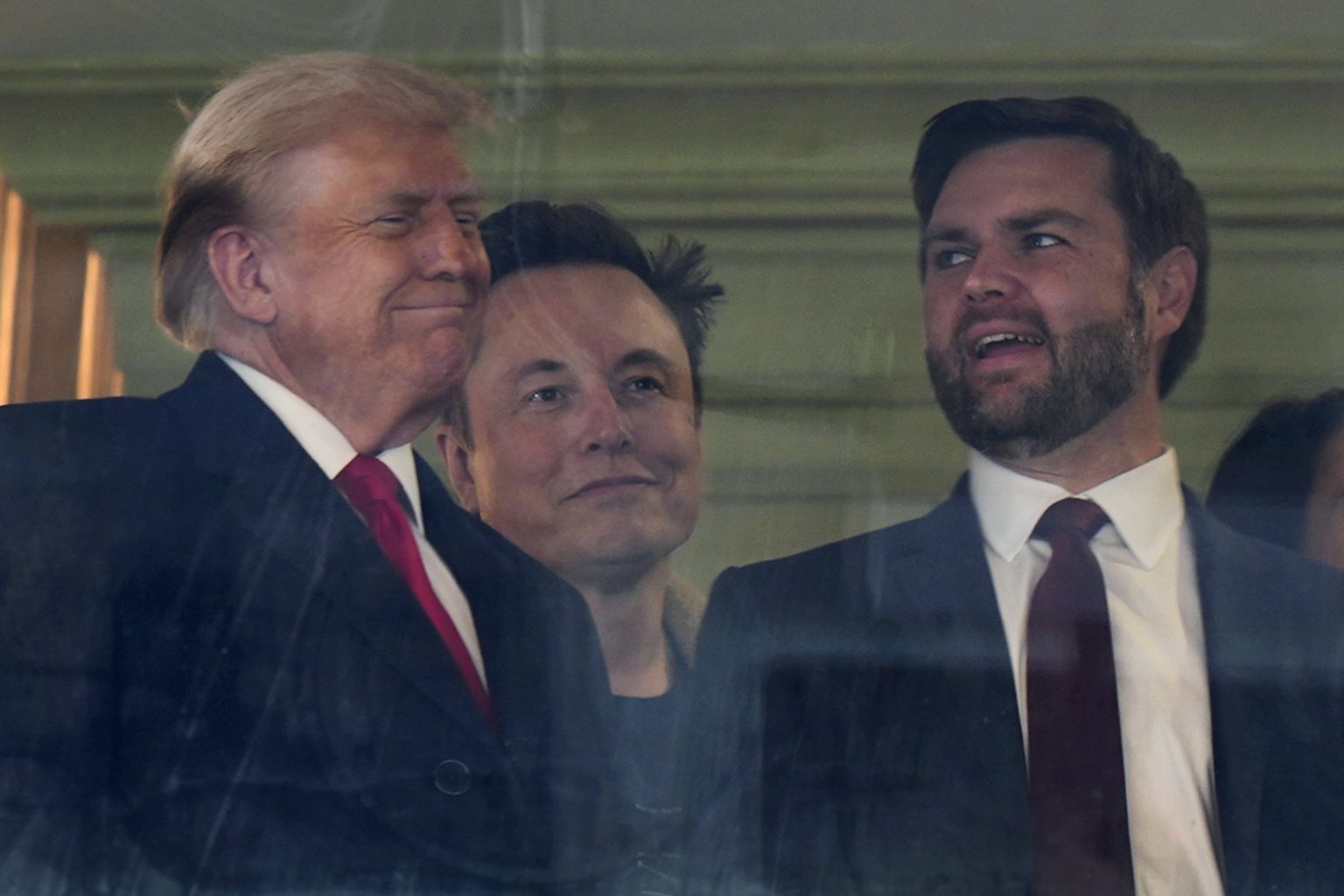The looming threat of a government shutdown over the holiday season has ignited a political firestorm, fueled by an unlikely alliance between former President Donald Trump and tech mogul Elon Musk. Their combined opposition to a short-term spending bill, orchestrated by House Speaker Mike Johnson, has thrown the legislative process into disarray and raised questions about the power dynamics within the Republican party. The spending bill, designed to avert a shutdown and provide crucial funding for disaster relief, economic aid, infrastructure projects, and combating revenge porn, has become a battleground for competing political agendas. Musk, in a series of posts on X (formerly Twitter), argued against passing any legislation until Trump takes office in January, while Trump and Vice President-elect JD Vance issued a joint statement demanding a “streamlined” bill devoid of “Democrat giveaways.” This unexpected intervention by Musk, who has no official government role, has drawn sharp criticism from Democrats and some Republicans, who have sarcastically dubbed him “President Musk,” implying that he wields undue influence over Trump and the GOP.
The controversy surrounding the spending bill underscores the complex relationship between Trump, Musk, and the Republican establishment. While Johnson initially indicated that he had been in communication with Musk and entrepreneur Vivek Ramaswamy about their concerns regarding the bill’s spending levels, Senator Josh Hawley contradicted this narrative, claiming that Trump had been blindsided by the legislation and was only learning about it through media reports. This conflicting information points to a potential rift between Trump and Johnson, a relationship vital to the success of Trump’s legislative agenda in his upcoming term. Adding to the intrigue, a source close to Trump revealed to CNBC News that the president-elect is “totally against” Johnson’s resolution, further highlighting the internal divisions within the party.
Musk’s unprecedented involvement in the legislative process has raised concerns about the potential influence he may exert within a Trump administration. As the head of the newly created Department of Government Efficiency (DOGE), Musk has pledged to make substantial cuts to the federal budget, a goal that aligns with his and Trump’s stated fiscal conservatism. However, his active role in opposing the spending bill, which includes vital aid for disaster-stricken areas and other critical programs, has been interpreted by some as prioritizing ideological purity over the immediate needs of the American people. This raises questions about the potential consequences of his influence on policy decisions, particularly given his lack of experience in government and his pronouncements against government spending.
The potential government shutdown carries significant political ramifications for all involved. For Trump, a shutdown could alienate key segments of his base, particularly seniors and veterans who rely on government assistance. Moreover, the optics of a shutdown so early in his term could damage his image and create an impression of instability and dysfunction. For the Republican party as a whole, the internal divisions exposed by this conflict could hinder their ability to effectively govern and advance their legislative agenda. The narrow Republican majority in the House leaves little room for error, and the absence of several GOP representatives due to Cabinet nominations further complicates the legislative process.
The reaction to Musk and Trump’s joint opposition to the spending bill has been swift and highly critical, especially from Democrats. Senator Bernie Sanders condemned Musk’s intervention, accusing him of prioritizing his personal wealth over the needs of the American people and highlighting the dangers of oligarchic influence in politics. Former Republican Representative Adam Kinzinger characterized the situation as a preview of a “messy” four years under a Trump administration influenced by Musk. Democratic Representatives Pramila Jayapal and Kevin Goldman echoed these sentiments, both suggesting that Musk is effectively acting as a “shadow president” and dictating policy decisions to Trump. These criticisms reflect a broader concern about the erosion of democratic norms and the undue influence of wealthy individuals in the political process.
The immediate future of the spending bill and the prospect of a government shutdown remain uncertain. Lawmakers face a tight deadline to reach a compromise before Friday to avoid a shutdown. The pressure to act is immense, particularly given the approaching holidays and the potential disruption to government services. However, the path forward remains unclear, as it is uncertain what concessions, if any, Trump and Musk are willing to accept. The possibility of a significantly reduced spending bill, stripped of crucial funding for various programs, looms large. While some lawmakers express hope that a temporary continuing resolution can be passed to avert a shutdown, the deep divisions within the Republican party and the looming debt ceiling issue suggest that a long-term solution remains elusive, potentially setting the stage for further political battles in the new year.


